2023 Carolina Code Conference Wrap Up
Recap, Highlights and What's Next for 2024
The 2023 Carolina Code Conference is in the books and from all accounts it seems like the event was a great day and huge success!
You wanted to be there and it showed before, during and after the event. The 2023 conference sold out in 25 minutes and had a waiting list with about 100 more people. We were at capacity inside and the energy in the room was palpable.
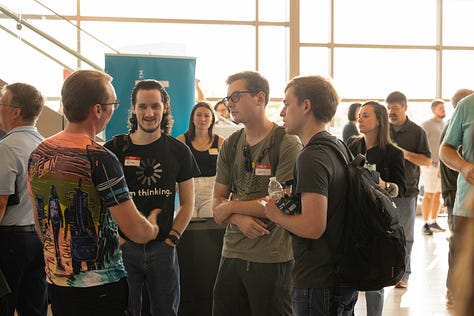
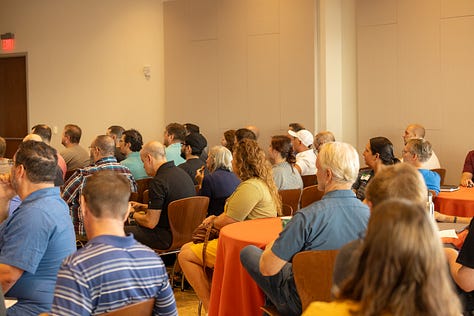
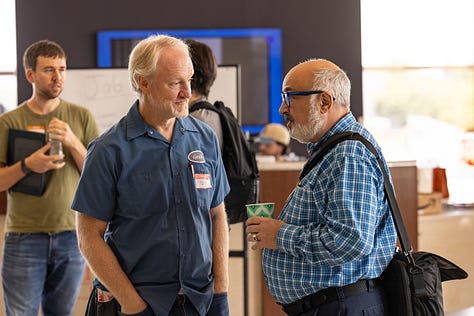

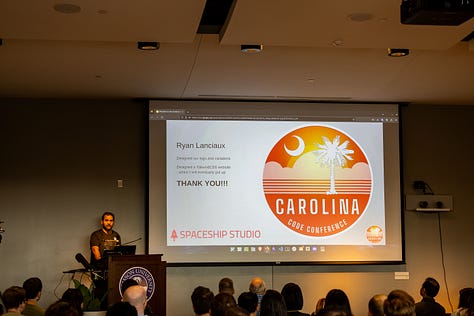
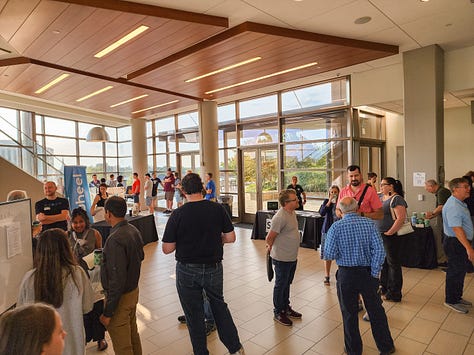
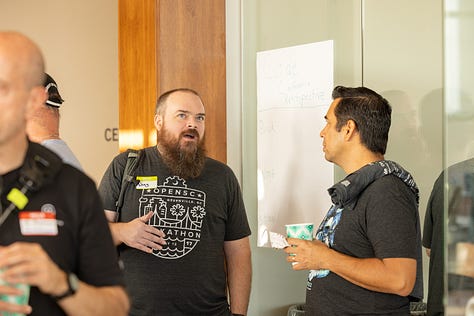
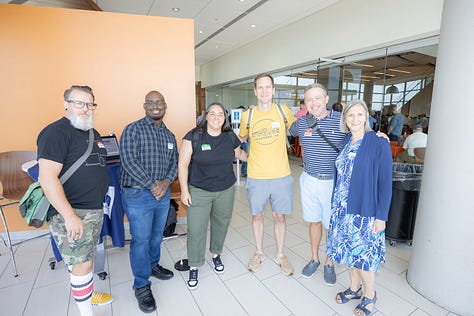
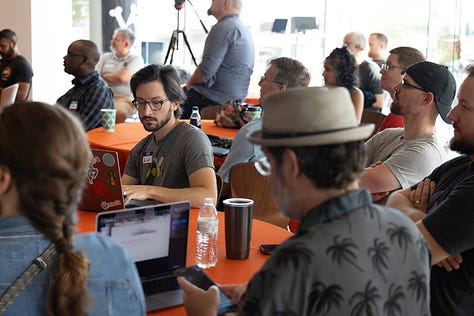
This event came together because you wanted it to happen. You stepped up and helped us find sponsors, spread the word on social media, contributed to our social contests like the Code Header Challenge and our crowdsourced t-shirt too!
Our Volunteers Were Awesome!
We’ve received a lot of positive feedback and that’s fantastic news for the future of the event. We have a lot of volunteers to thank for that, because there were certainly opportunities for things to go sideways as we started the day.
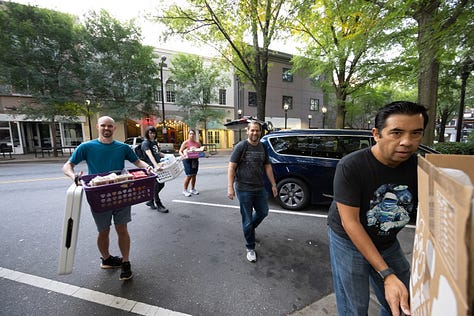
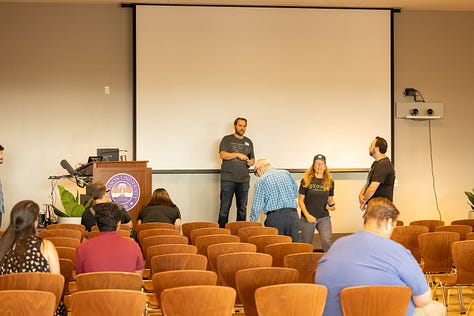
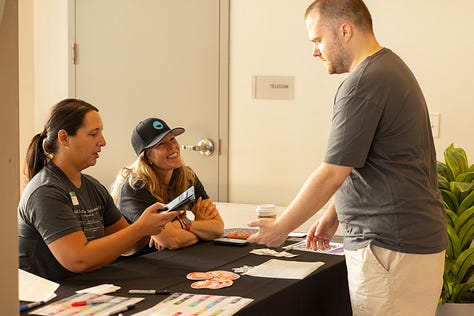
What if we forgot the coffee pots, then had them trip a breaker in the building while scrambling for extension cords to get things sorted out and rearranged? That happened. If that doesn’t seem like a big enough crisis, I assume you haven’t ever seen programmers without coffee. It could have gotten ugly. 8^]
So many little things came up throughout the day that our volunteers just handled, time after time which ensured the day went smoothly and kept them from becoming bigger issues.
Volunteers were on it.
Royal Joel
You can’t have a Carolina Code Conference without founder Joel Taddei. He was already like royalty to us and now it’s permanent as Royal Joel will be casting his gaze over the conference stage for years to come! EDIT: Now you can watch it too!
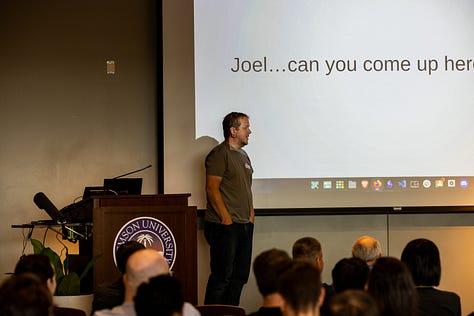
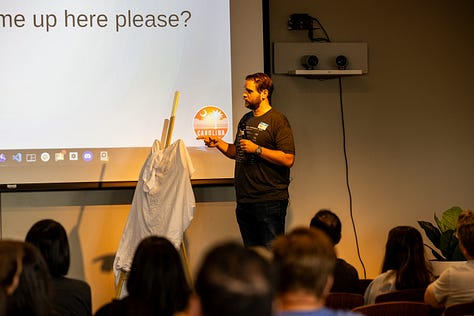
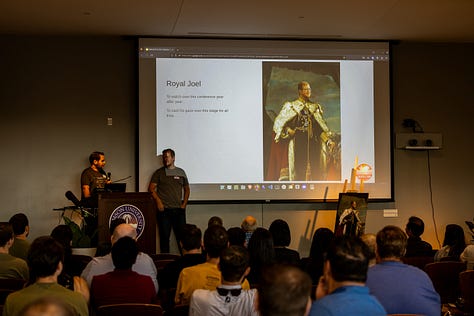
If you’re interested in finding out more about how Joel started the conference, checkout his interview on the podcast that we also debuted at the event, the Carolina Code Cast! A big shout out to Heard Media for helping us to get this thing off the ground!
Speakers.assert(“magnificent”)
The aspect of the conference that stressed me out the most, by far, was making sure the talks went smoothly because there was a lot of experimentation going on in the way that we ran things with this event.
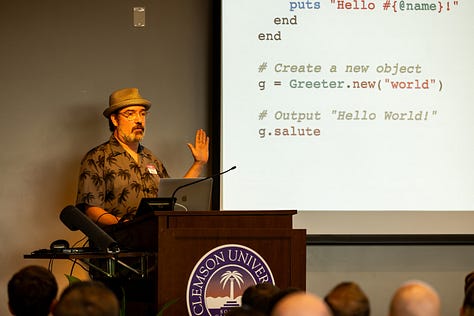
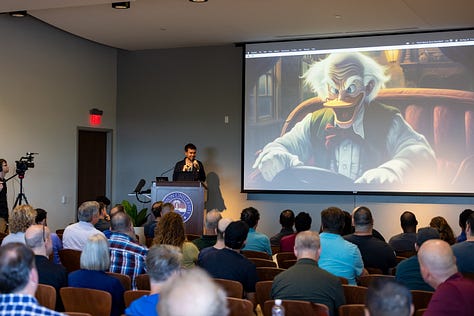
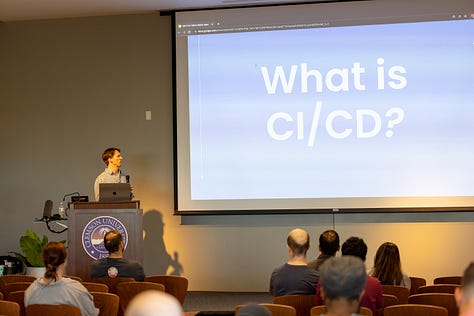
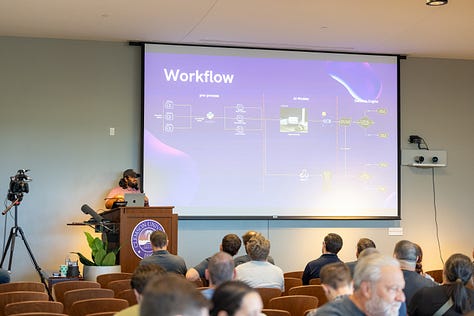
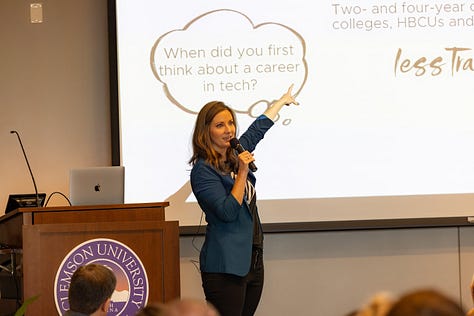
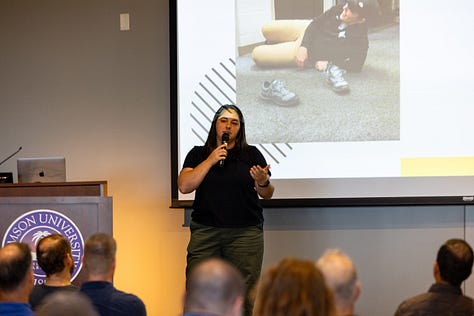
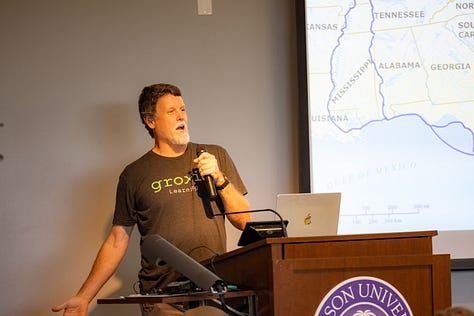
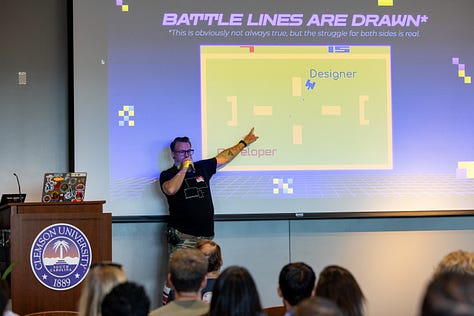
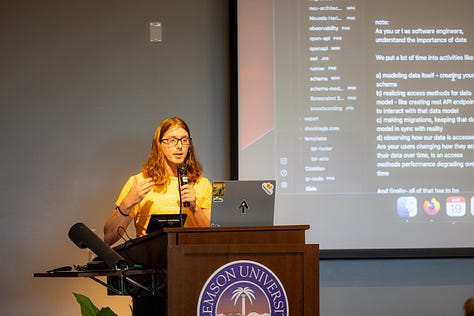
In Theory
First, it’s a polyglot conference so the topics are not focused around a single language. They’re going to be diverse. People are going to hear talks that maybe they wouldn’t have chosen to walk into on their own.
Second, we had variable time slots. Talks were either 60 minute keynotes, 30 minute intermediate talks or 10 minute lightning talks with a mixture of these lengths throughout the day. It was going to be interesting to see if our audience was receptive to the format in practice vs only theory.
The conference is also single track, for several reasons, but that also meant that the timing has to be very accurate. If anyone had run over by more than a couple of minutes we’d have been forced to stop the talk so that we could transition in the next speaker.
Lastly, with the tight schedule our audience needed to be able to take appropriate breaks throughout the event while maintaining the opportunity to network.
In Practice
On all of these aspects, the event format worked! Our speakers did an excellent job communicating to a broad audience. Numerous attendees have expressed interest in topics that they learned about during the event too!
Nobody went over their time, so our speakers were very well prepared. The built in 5 minute buffers on each of the lightning talks throughout the day allowed plenty of time for audience breaks as well.
This format working was also critical to the future of the event. In a polyglot format, you need to be able to accomodate a wide variety of topics and if a topic that somebody isn’t interested in is scheduled to go on for too long…they’re going to get bored or stir crazy.
Sticking with Single Track
The single track nature of the event required the variable length talks in order to facilitate numerous topics without having to have competing tracks. I told this story at the close, but I’m committed to keeping this event single track as long as possible.
Getting accepted to speak at a conference is a huge honor for a speaker. We had 83 talks submitted this year, which meant that just being selected was a hard enough. You’re excited at the acceptance, then you prepare and the day comes for you to execute. In a single track conference, you do exactly what you prepared for and the audience will eagerly respond. In a multitrack conference, you have to compete with every other session description in your time slot.
I once gave the same talk at 2 different conferences within 2 weeks of each other. A single track event in Denver an an 8 track event in Nashville. At the 8 track event, I had a room that would hold 200 people with 5 attendees. At the single track event, I had a hugely receptive room with numerous positive conversations and the ability for each speaker to reference other speakers talks because we were all working with a common experience. The single track format was significantly better as a speaker.
As an attendee, you see your friends in the hallways and try to have a conversation about the talk you just came out of…but they didn’t go to that one so there’s not much of a reference point. The multitrack format is certainly popular and it works for a lot of other events, but we don’t need to be like other events.
We’re going to remain single track.
If you’re a speaker for the Carolina Code Conference in the future, you’ll know that you’re going to have the entire conference’s attention.
Disaster Recovery
One other aspect of this variable length format experiment was what would happen when a speaker inevitably dropped out at the last minute. A lot of experienced people told me to be prepared for this inevitability.
The plan was simply this: Speakers submitted talks for multiple possible lengths. For talks approved for a shorter length that also had a longer length option, we reached out to see if a few were willing to potentially go longer if something came up.
And that worked! Robert Roskam had to drop at the last minute unfortunately and Sean Reid was able to step up to go for a longer time slot. Everything ran smoothly and I’m glad, because I really couldn’t imagine trying to have a backup speaker on deck that potentially wouldn’t be speaking at all.
Coming Soon on Video
Over the next month of so videos of the talks at the event will be edited and prepared for distribution, so stay tuned for that if you weren’t able to hear them in person. The team over at Aaron Pate Media is working hard to get things put together for a high quality distribution.
Experiments and Activities
In the spirit of coding, we did a lot of experimenting with this event. Lots of folks said they wanted to do networking activities afterwards but figuring out what these would look like was interesting.
We had options but some of those options required reservations, so I had to try to get commitments ahead of time, which was complicated. Despite a lot of early interest, we didn’t have enough people commit to the dinner shows to book them. We did end up with a solid turn out for Axe throwing and game night but only a couple of puzzle solvers for the escape room.
The hackathon and game night at OpenWorks had a solid turn out!
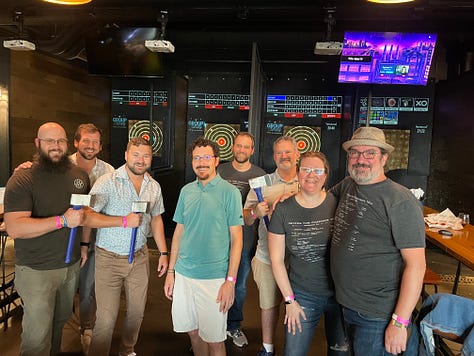
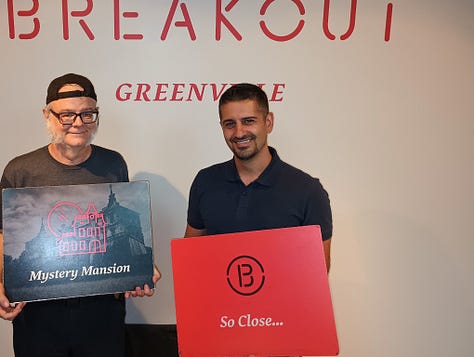
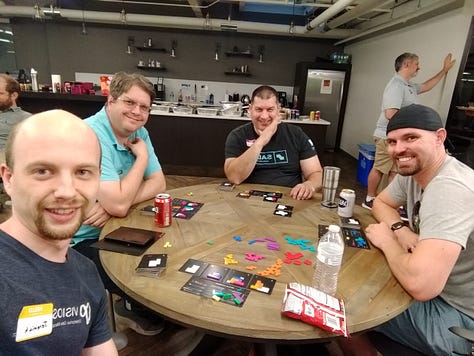
One other aspect to the evening activities was the simple fact that it was a single day event on a Saturday, so a lot of people were just ready to go home after a big day. Evening activities on the middle days of a multiday conference would probably tell a different story.
Conference Chat with Zulip
We also unveiled a conference chat system powered by Zulip the night before the event to help attendees coordinate with each other. In hindsight, if we got that moving a little farther ahead of the conference then attendees could probably have coordinated a little more effectively too. We’ll file it under lessons for next year.
DEF CON 864’s Capture the Flag Competition
The folks from the DC864 meetup ran a cybersecurity capture the flag event at the conference to win a fabulous Flipper Zero prize. This competition ran throughout the day and the returns have been only positive. It seems as though everybody who participated had a great time and learned something in the process.
Although we weren’t able to get a security talk in the schedule for this year, we’ll definitley be correcting that during future events. Thanks to these guys!

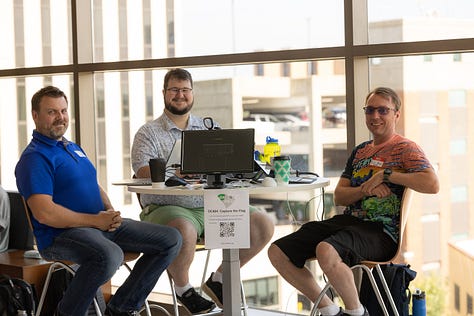
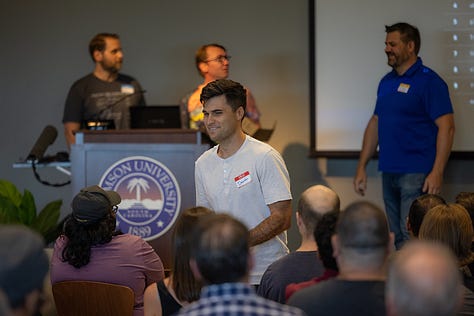
Don’t Stop Believing…in Code!
Our crowdsourced t-shirts were very well received at the event too! If you didn’t get one but were interested, we do have a few more left in various sizes. Just reach out and let me know so we can figure it out.
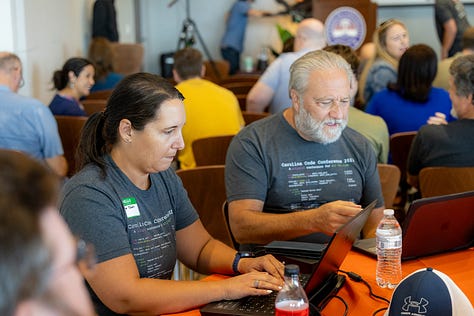
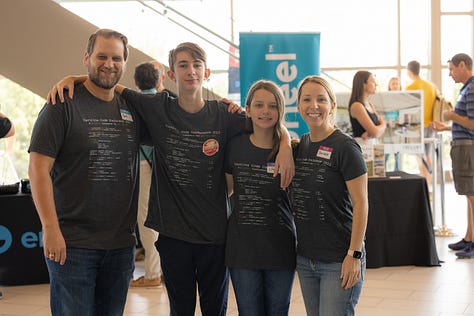
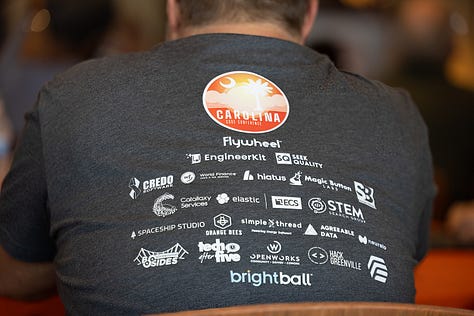
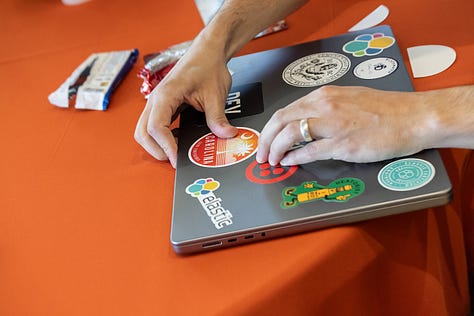
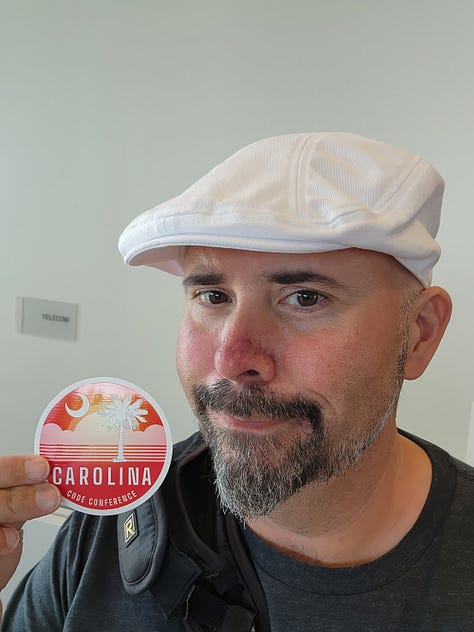
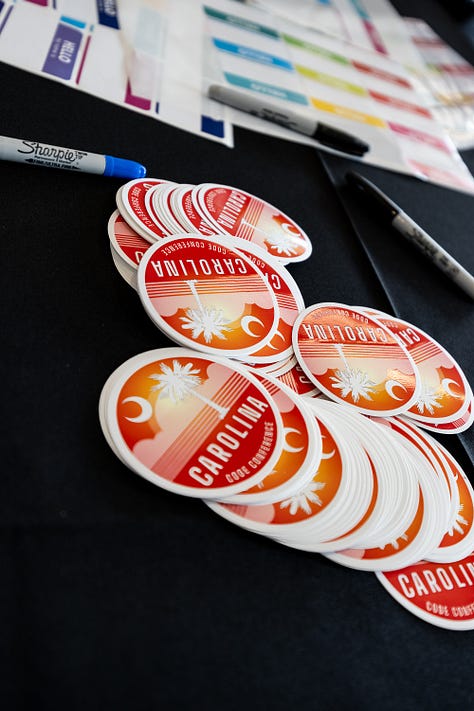
As wise man once told me that you know you’ve made it when people are putting your stickers on their laptops.
“You know you’ve made it when people are putting your stickers on their laptops.”
- A Wise Man
Well…we’ve made it folks.
Huge Thanks to Our Sponsors!
I’ve said it a lot so far but I’m going to keep on repeating it. THANK YOU SPONSORS! Your generosity made this entire event possible and we hope that you had as good of an experience as we did.

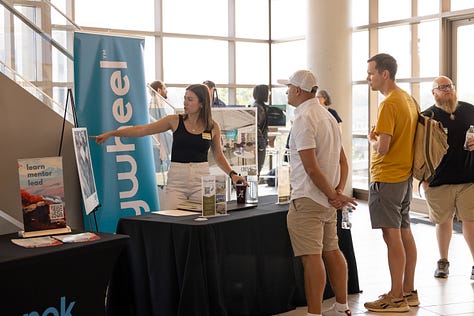
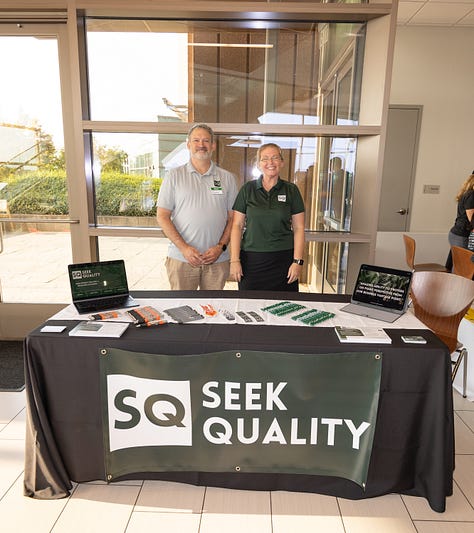
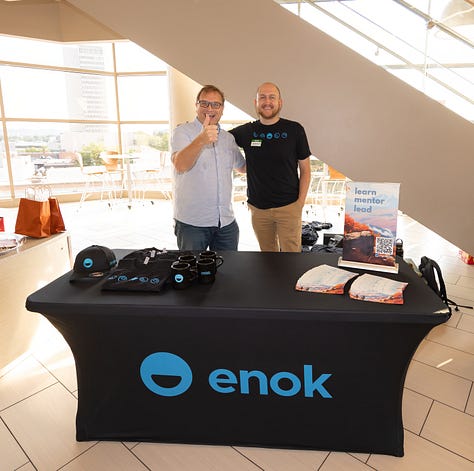
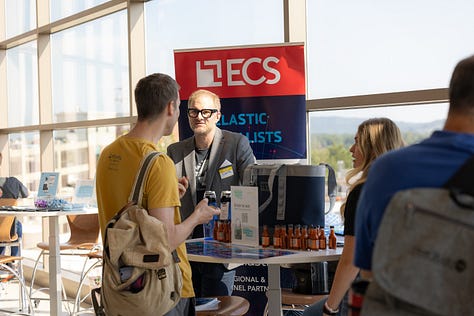
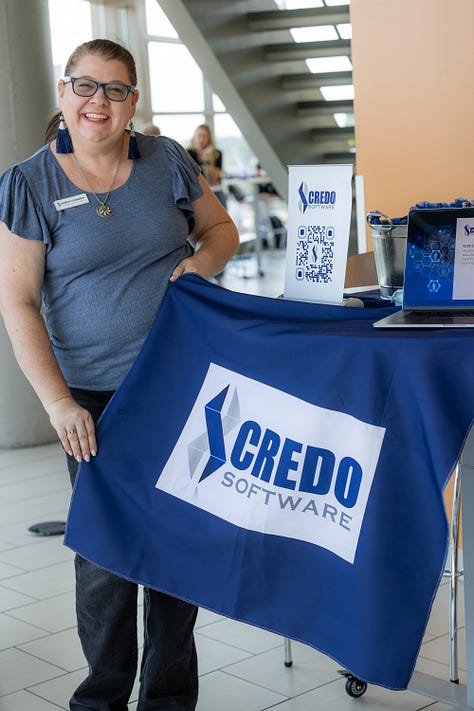
These are just a few of the sponsor tables that were setup, but please go checkout out all of our sponsors!
What’s next for 2024?
Planning is already under way for 2024 as we finish with the 2023 wrap ups. Stay tuned for the public announcements about next year’s event that was announced at the end of the conference.
If you just can’t wait (I’m really happy to hear it!), ask somebody who was there for more information. It’s going to be awesome!
In the mean time, subscribe right here to see the big announcement very soon and to be the first to know about our 2024 Call for Speakers, early access tickets and sponsorship opportunities as they develop!
Follow us on X / Twitter, LinkedIn, Instagram, Mastodon, Facebook and YouTube for more pictures and video as we get them published! And of course, to be part of the conversation as it happens join the HackGreenville Slack and head on over to the #carolinacodeconference channel!

